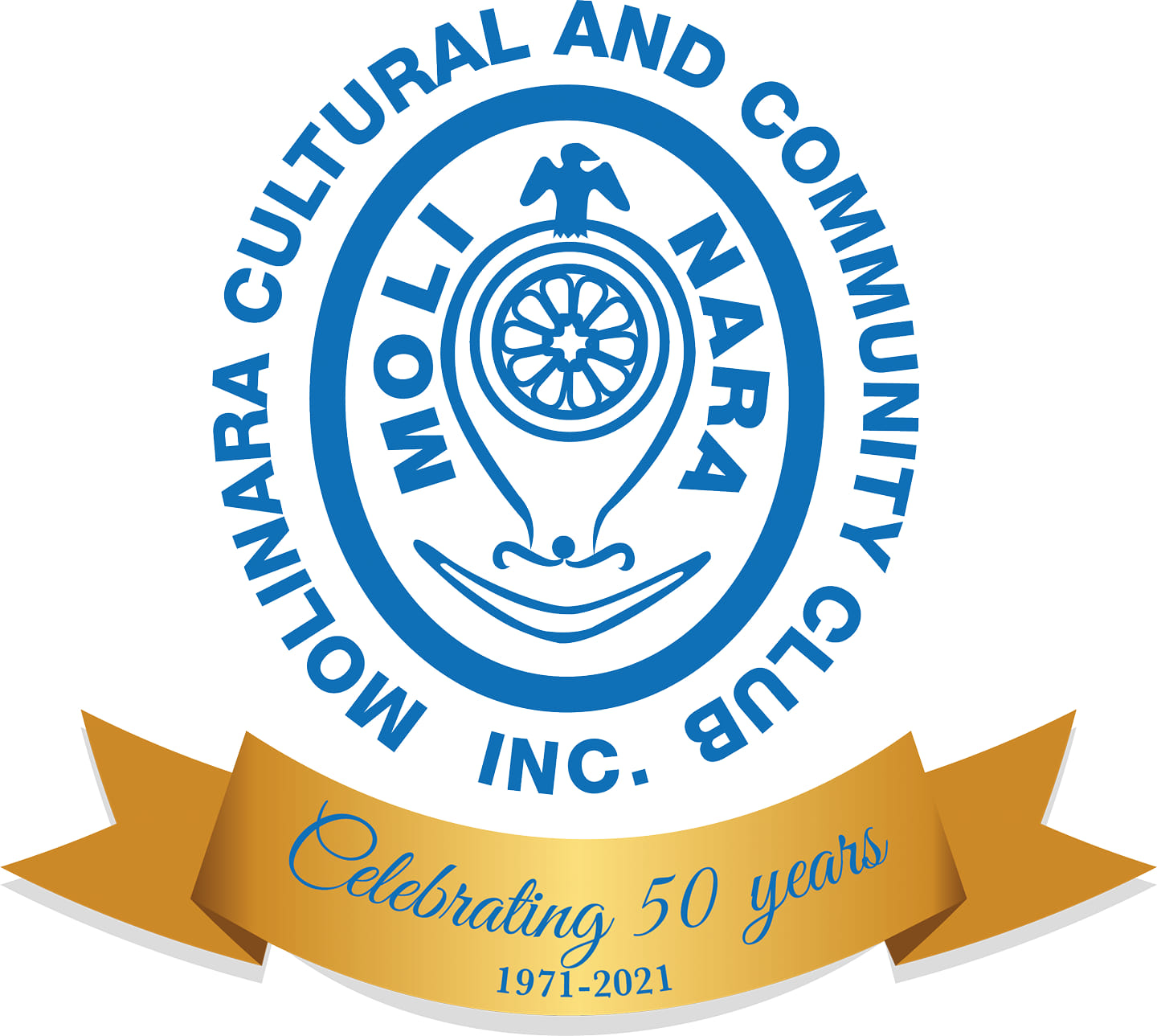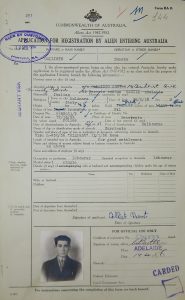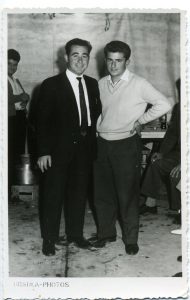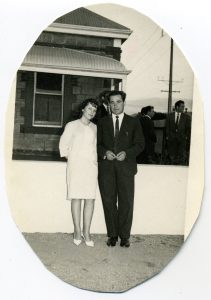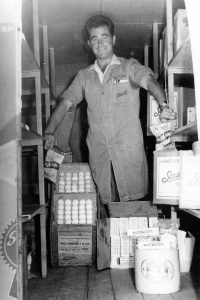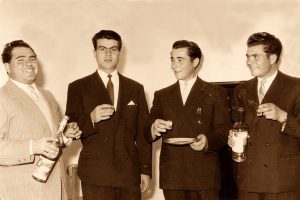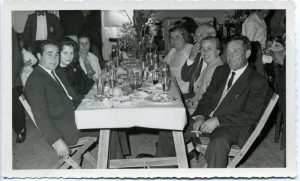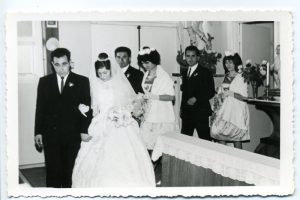Donato Callisto
President Molinara Club 1978 – 1981 and 1984 – 1986.
Convenor Cultural Committee (approximately 2000 – 2010).
I was born in Molinara, Benevento on 28 May 1938 and was the fifth of eight children. As I child in Molinara, I remember working at a young age (around 5 or 6 years), helping mum and dad around the house. Some of my chores included milking cows and goats; cleaning the animal stables; helping to grow fruit and vegetables, by sowing seeds and tending to the land. As a family, we ate potatoes, beans and pasta and all of our food had special significance to us as it was hand grown. Also, some foods were not in abundance, and only eaten at particular times of the year because it was seasonal (different to today, where most foods can be bought at anytime of the year).
I left Molinara in April 1956 by boat (called “Sorrento”) with other Molinaresi families. I came with Concetta Gentilcore and her family. The journey took 31 days from Naples to Australia. Most of my journey was smooth, but from Fremantle Western Australia to Melbourne, the journey was very rough due to high rough seas.
Before leaving Molinara and migrating to Australia, I didn’t really know what to expect in living there, but my brothers Cosimo and Nicola wrote to me and our family in Molinara saying to come to Australia for a better life. I was very lucky as my parents sought help from friends to gather money for my journey. When I arrived into Adelaide, my transition was fairly smooth because I was sponsored by my brothers and we lived and worked together. I was able to continue some of my Italian cultural practises, because I spoke Italian and ate out our traditional (simple) Molinaresi foods.
The day after I arrived, I went straight to work at Waterworks on Grand Junction Road with my brothers who were also doing labour work, digging trenches for pipes and helping to load the pipes onto the lorry truck. As well as working during the day, (for a few years when I arrived in Adelaide), I went to night school with other foreigners to learn mainly the English language and some other education. Of course, working in Adelaide with other Australian and British workers, meant that we had to adjust to Australian way of life. In the area of work, we had to adapt our working life to communicate the best we could as we didn’t speak English. We were taught by being shown how to do the job, and we learnt by communicating via hand motions, or hand signals.
After about a year of working at the Waterworks, I got a job delivering dairy products. In the 1960’s, I changed my work to Perrys Continental bread, (Leader St, Goodwood). During that period it was difficult to buy Italian bread in the shops, so I delivered it to many Italian families all over Adelaide. In the 1970’s I changed my work again, to deliver milk house-to-house in the Paradise area and this changed in the 1980’s when home deliveries were stopped, I delivered milk to the retail shops in Adelaide.
For most of my life in Australia, we have been living between two cultures. When I arrived, I lived with my brothers in a house so we could live our Italian world by speaking in Molinarese; cooking our traditional dishes. It was difficult to eat pasta but occasionally, it was delivered to us by some Italians who made it. Later, when I delivered milk and bread, I would occasionally swap with a Balfours representative, so we ate Australian ‘treats’ like finger buns, pasties, cakes, etc.
The biggest challenge of living in Australia was missing parents and family who were left in Molinara and it was difficult to keep in touch as they didn’t all have phones and the internet didn’t exist. The opportunities were finding work quite easily and being able to earn money so that I could send it back home to Molinara to repay my parents that they borrowed money from other friends to pay for my journey to Australia. Even though we were very happy to be earning the Australian dollar, I remember using money was challenging as we weren’t used to money in Molinara and then had to learn the value of the currency (shillings, pennies, etc).
Learning how to speak English was also a big challenge, but over the years it has improved especially after I had children who went to school and we had to communicate with the teachers. Overall, I’m proud of my ability to communicate well in English.
My parents’ expectation of me was to work hard and make the most of my new life in Australia. It was a general expectation in those years, to marry and have a family in Australia. I married Antonietta Girolamo in 8 June 1963 and in those days, our weddings were a very special reunion with all our Molinaresi family and friends. Whilst we had many guests, our food was very simple (perhaps like the weddings back in Molinara).
The first time I returned to Molinara was as Treasurer with with Regione Campania Committee (mid to late 1980’s). In this situation, I went with a group so it was a fairly easy transition back into Italy as I understood the language, but some of the customs were strange to me (using currency; catching trains, etc) as these were new experiences for me. I also returned to visit my family in Molinara and around Italy, so it was really good to reunite with my family whom I hadn’t seen in many about 40 years. Perhaps I didn’t realise then, but I’m sure I felt a little different as the Italy that I knew as a child, had changed and I had also changed having lived in Australia.
Living in Australia meant that we worked hard, and we also kept relationships with our other Molinarese paesani at weddings, family gatherings. We visited each other at in our new homes to maintain friendships, traditions and we always helped each other. My parents came to Australia in 1973 and by then there were many Molinaresi friends and family to welcome them, so the Molinara Club became a significant ‘home’ for all of us Molinaresi migrants to help maintain our significant relationships.
I remember the Molinara Club was originally at St Francis of Assisi Church, Newton. These rooms had to be demolished and renovated and once modernised, many functions were held for all Molinaresi and paesani. These were special occasions as we were able to get together, with our Molinaresi friends and family and we still have continued to maintain these friendships in the 50 years we’ve been here in Adelaide.
A significant project I helped develop as Convenor of the Cultural Committee of the Molinara Club is the book ‘Terra lasci, terra trovi: from Molinara to Adelaide.’ This book is well-known an appreciated within the Molinarese community both in Adelaide and Molinara. For over 10 years I worked with this committee to provide our Molinaresi families some history about their journey, Club and families. This book has given me immense pleasure as it has helped Molinaresi understand their roots, history and family trees.
